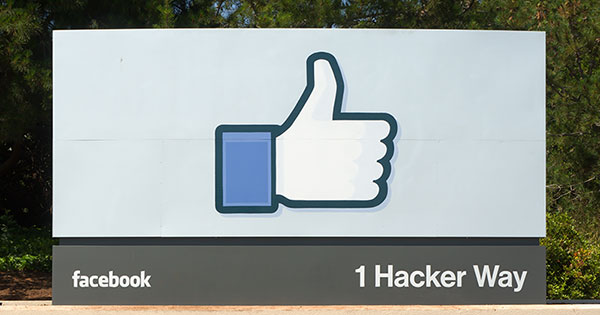CEO Mark Zuckerberg on Tuesday revealed that Facebook may integrate some type of alternative to its ubiquitous Like button.
Facebook users have asked for a Dislike button for years, and the company now is preparing to launch a test of something designed to respond to that user demand.
The idea is not to transform Facebook into a forum where users could in essence vote up or down on particular posts — that isn’t the point, as Zuckerberg was quick to point out.
Instead, the idea is to provide a way for users to express emotions other than Like when posts may contain sad or disturbing news. The idea is to allow people to express empathy with friends and a greater range of emotional responses.
“It’s always been difficult to sympathize with someone’s misfortune on Facebook by ‘liking’ their post,” said Josh Crandall, principal analyst at NetPop Research. It creates an uncomfortable moment.
“Offering another way of communicating is great for users, and it’s also terrific for Facebook,” he told TechNewsWorld. “Now, they are going to be able to track multiple emotions — positive and negative — through a binary input. The implications of this are wide ranging: Users will be able to express themselves more clearly [in response] to suggested posts and other brand content.”
Not a Flame War Tool
Facebook has been wary of introducing anything to supplement the traditional Like button for years, but it apparently has reconsidered. Still, it is being careful.
“Despite the pent-up demand for such a capability, Zuckerberg explicitly said this isn’t going to be a Dislike button,” said Greg Sterling, vice president of the Local Search Association.
“Facebook is well aware of the havoc that would be caused by such a tool,” he told TechNewsWorld.
“There would be a tremendous amount of bile and snark expressed accordingly, especially toward companies and brands — advertisers that Facebook is trying to work with,” Sterling added.
More Nuanced Approach
Facebook will have to walk the line with caution as it rolls out any new option, and it no doubt will watch user responses very closely.
“It’s not clear yet what will show up, but it’s supposed to be a ‘more nuanced’ way to express emotions and thoughts other than Like,” suggested Sterling. “If things get out of control, and hostility or other negative sentiments are too widely expressed, then I’m sure Facebook would shut it down.”
Avoiding Flame Wars and Censorship
Facebook will have to ensure that its Like alternative isn’t used to exacerbate conflict on the network.
“Facebook has been paying more attention to online bullying, and the company must continue to refine how to promote healthy interactions,” said Crandall.
“If you think of the Dislike button like a muted stance on a topic or position, it’s easy to imagine that engineers can keep track of a negative signal and start to modify the way it’s distributed before flame wars erupt,” he suggested.
On the flip side the new button could help users police the Facebook community.
Facebook has been censoring content, in a way, based on user feedback, notedsocial media consultant Lon Safko. It has shut down white supremacist and other hate groups and content, for example.
Through a Like alternative, “Facebook is giving the power to the people to dislike content,” he told TechNewsWorld.
“All media has to have some ability to institute self-policing censorship,” Safko said. “I am not a fan of censorship, but I do support the ability to censor when the populace chooses what they think is appropriate for that specific media outlet.”
The new tool Zuckerberg alluded to may give Facebook users the right — and even the ability — to choose between offensive and appropriate content.
“It might create conflict between a poster and a reader,” acknowledged Safko, but it will result in a more open discussion.























































In my opinion, the day that Facebook implements the "Dislike"/"Down-vote" button, it will be the day that many users will start to boycott using Facebook. Why? Because their ego will be harmed. For now many people who are posting on their publicly made profiles the pictures that have been made on their free time feel that they are getting positive attention. Why? Because they see on their monitors that, let’s say, 100 people had pressed the "Like" button. And they think: "Wow, many people like my photos. Must publish more". And many people follow this trend, because they like being "liked". However, introduce an option of "Dislike" button, and you will begin to see how many people actually give a damn about your posts, about your pictures, the music you like, the books you’ve written. It could very well be that not many give a damn. And then your ego is bruised, and you start to think: "OK, so, people do not like what I’m doing. So, why AM I still posting this? I shall simply find something else". And you have a decline in Facebook users.
Now, I may like (as a regular Facebook user who visits it 1 time a week, because for "catching-up" with friends who are abroad I usually use "SKYPE") this new initiative to introduce a variety of support "emoticons", because as it was stated, it was kind of a baffle to see so many likes, for example, on a Internet newspaper depicting rape or murder. What, that means that people like this stuff? Or it just means that they press "Like" in order to express their solidarity with someone?